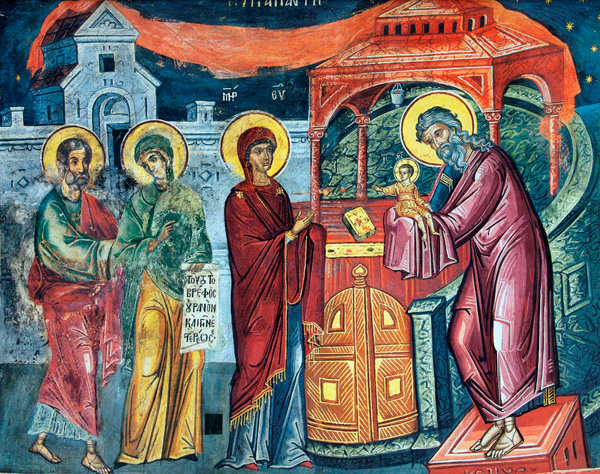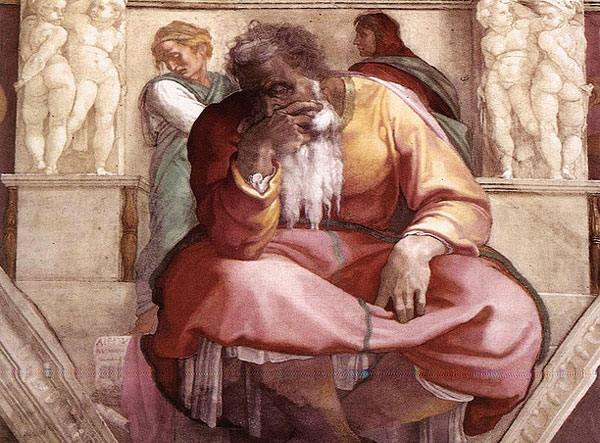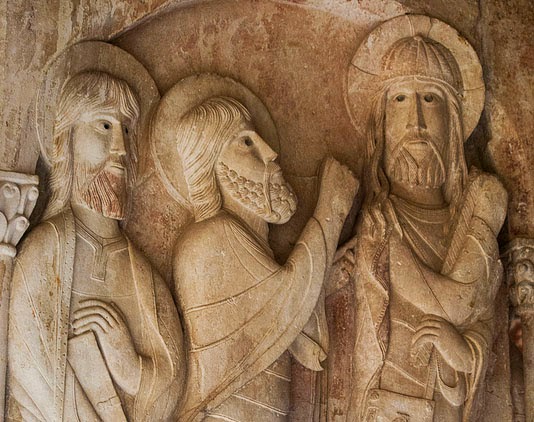When Moses came down from Mount Sinai with the two tablets of the covenant law in his hands, he was not aware that his face was radiant because he had spoken with the LORD. When Aaron and all the Israelites saw Moses, his face was radiant, and they were afraid to come near him. But Moses called to them; so Aaron and all the leaders of the community came back to him, and he spoke to them. Afterward all the Israelites came near him, and he gave them all the commands the LORD had given him on Mount Sinai. When Moses finished speaking to them, he put a veil over his face. But whenever he entered the LORD’s presence to speak with him, he removed the veil until he came out. And when he came out and told the Israelites what he had been commanded, they saw that his face was radiant. Then Moses would put the veil back over his face until he went in to speak with the LORD. (Exodus 34:29-35)
Moses had a fading glory. It was fresh when he first came down from Mt. Sinai with the tablets of the Law. His face was radiant then, so full of light and glory that the people were intimidated by it, afraid to come near. But when Moses finished speaking to them, he covered his face with a veil. There were apparently several cycles of this: Moses spoke with the Lord and his face became radiant, then he spoke to the people with his face unveiled, then he covered it up again. The apostle Paul understood the reason for this: the glory faded away because it was but a shadow that would one day give way to the reality of what it represented, and to a glory that endures.
Therefore, since we have such a hope, we are very bold. We are not like Moses, who would put a veil over his face to prevent the Israelites from seeing the end of what was passing away. But their minds were made dull, for to this day the same veil remains when the old covenant is read. It has not been removed, because only in Christ is it taken away. Even to this day when Moses is read, a veil covers their hearts. But whenever anyone turns to the Lord, the veil is taken away. Now the Lord is the Spirit, and where the Spirit of the Lord is, there is freedom. And we all, who with unveiled faces contemplate the Lord’s glory, are being transformed into his image with ever-increasing glory, which comes from the Lord, who is the Spirit. (2 Corinthians 3:12-18)The “hope” Paul has in mind here is the expectation of the enduring glory of the new covenant mediated through Jesus Christ. The old covenant, mediated through Moses, was glorious but transitory. The Law cannot change us; it can only point out our need for change. It cannot give us life; it can only point out our deadness. It cannot create righteousness in us; it can only condemn us for our unrighteousness. It cannot redeem us — but it can and does point us to Jesus our Redeemer.
When we turn to the Lord Jesus, the veil that covers our heart is removed so that we understand the Scriptures through the lens of who Christ is and what he has done. He is the reality of which the Law could only ever be a shadow, and what was veiled in the Law is now made clear in him. So the glory of the Law was never meant to endure but faded with the coming of Christ, to whom it was always pointing.
The Law of Moses was written on tablets of stone, but what we need is the Spirit of the Lord, who comes to write God’s law on our hearts. Indeed, he gives us a new heart and puts his own Spirit within us (see Ezekiel 36:25-27). Where that happens — as it does when we turn to the Lord Jesus in faith — there is true freedom, for the Spirit of the Lord transforms us.
Christ dwells in us by the Holy Spirit and when we contemplate him, we are contemplating who we truly are in him and who he is in us — and we become what we behold. It is as if we were looking into a mirror and the image that appears there changes our own appearance. In the Transfiguration, the glory of Christ appeared visibly, revealing his divinity in the form of his humanity. Likewise, as we look to Christ, we are changed by the splendor of his radiance, transformed into the image of him who is the perfect image of God, revealing with ever-increasing glory who God always meant for us to be.



















